Mpox cluster in Chicago: UMass doctor warns be prepared for disease risks
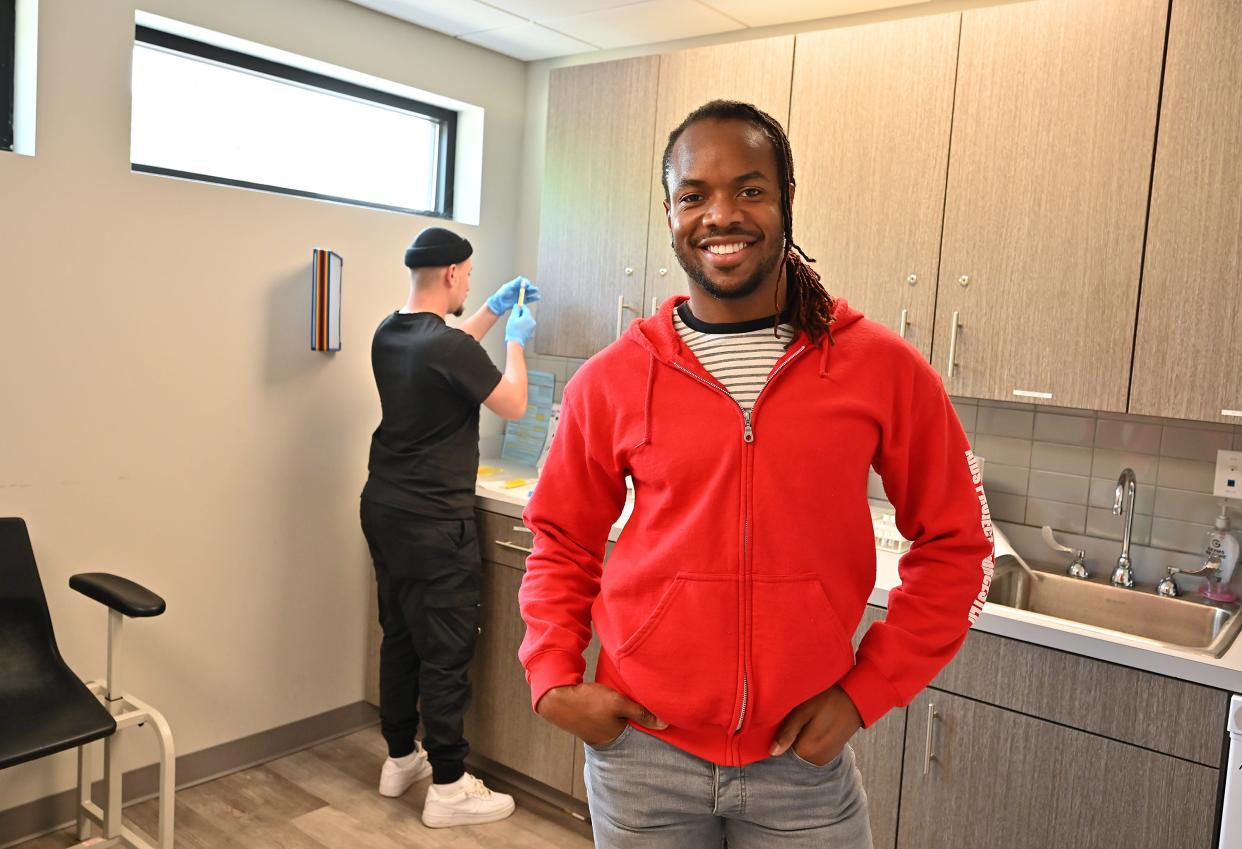
WORCESTER - Last week, public health alerts bombarded Dr. Mireya Wessolossky’s computer.
They originated from the U.S. Centers for Disease Control and Prevention, sent nationwide to warn health care providers about potential outbreaks of Mpox, otherwise known as monkeypox.
A recent Mpox cluster in Chicago had officials worried that the virus tied to the smallpox virus could result in new outbreaks across the U.S.
“Don’t know,” was Wessolossky’s answer when asked about the seriousness of Mpox risk in Worcester. As more people head outdoors and mix during the warm spring and summer months the risk increases, said Wessolossky, an infectious disease doctor at UMass Memorial Health.
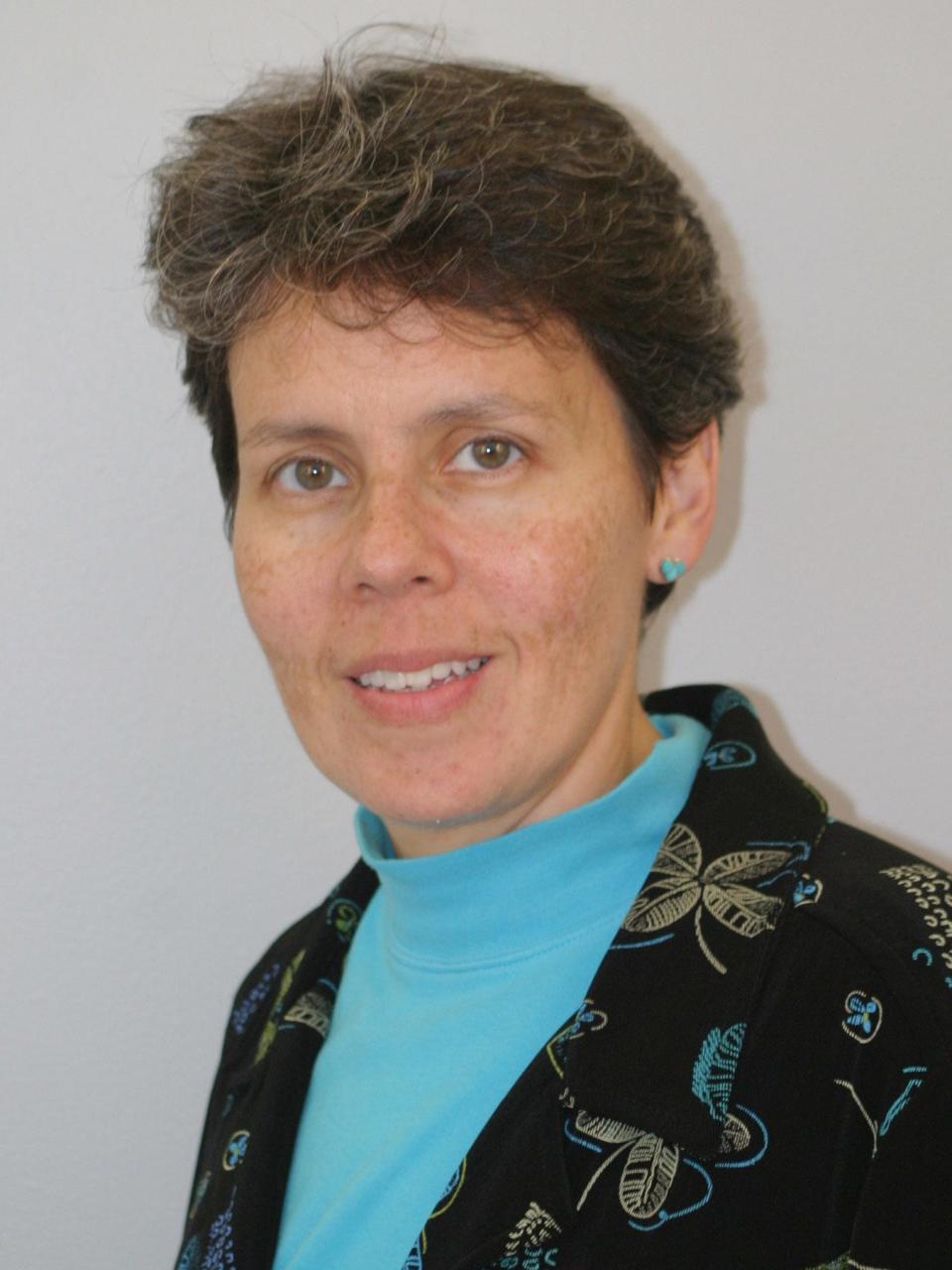
To date, a total of six patients in the UMass Memorial Health system contracted Mpox, she said. The city of Worcester reports a total of 15 cases and no deaths.
Statewide the number of infections totals more than 400, which ranks 15th highest in the country. California had the most cases with 5,759 as of mid-May. Nationwide, the number of infections tops 30,000, with more than 40 deaths.
One Mpox vaccination site in Worcester
AIDS Project Worcester on Southbridge Street is the city’s lone Mpox vaccination site. In fact, it's also the only one in Worcester County. It's a collaboration with UMass Memorial Health, where the two-dose JYNNEOS vaccine - provided free of charge - is available for those at risk of infection.
"Worcester is not isolated as a city or county when it comes to Mpox. People move, they interact, they travel to Cape Cod or Boston, here and there. We may need to pay attention. The Chicago cluster may trickle down here. We need to be prepared."
Dr. Mireya Wessolossky, infectious disease doctor at UMass Memorial Health
Since July, more than 600 people received the vaccine and nearly 1,000 injections have been administered.
Is one vaccination site enough?
Given the relatively low numbers in Worcester, the feeling is one vaccination site is enough, for now.
“Currently, I think we have been effective enough to accommodate the demand, so far,” said Lamar Brown-Noguera, AIDS Project Worcester community impact and youth engagement manager. If infection numbers increase, Brown-Noguera said AIDS Project Worcester has community partners to potentially open more sites.
Managing the site falls to AIDS Project Worcester, while those who administer the vaccines come from several sources including the city's public health department, nurse practitioners from UMass Memorial Health and contracted clinical support from a partner that Brown-Noguera declined to name.
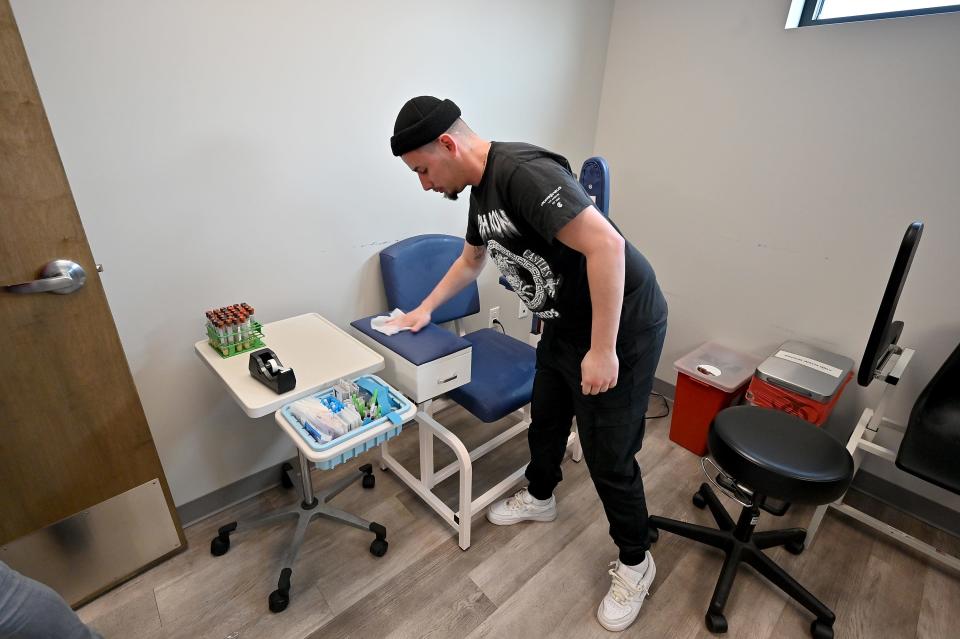
Candidates for vaccination can't have any signs or symptoms of the Mpox virus before visiting AIDS Project Worcester, according to the organization's website. Eligibility is open to those who work in Massachusetts and meet the Centers for Disease Control and Prevention criteria including individuals at potential risk for Mpox. Plus, those with possible recent exposure to someone with the virus.
Clinic hours are 9 a.m. to 5 p.m. Tuesday through Friday.
Brief background
Mpox first appeared in 1958 in colonies of monkeys kept for research.
The first human case was recorded in 1970, and before last year's worldwide outbreak, Mpox had been reported in several central and west African countries.
Who is most at risk?
Mpox is primarily transmitted through close skin-to-skin contact, especially during sexual activity. Data from the Centers for Disease Control and Prevention show the virus particularly strikes men in the 25-to-45 age category. Reported cases are highest among Black people (33%) and Hispanic people (31%). White people account for 30% of infections.
While Brown-Noguera noted many cases involve men having sex with men, including within the LGBTQ community, infection can also occur outside those groups.
"It’s not a sex-based-only illness. Also, routine contact can transfer the Mpox infection, as well,” said Brown-Noguera.
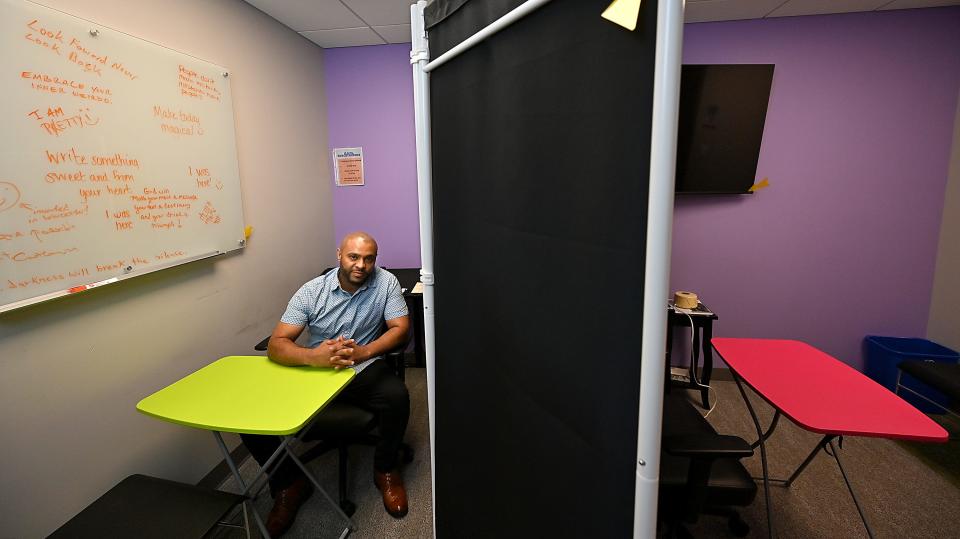
Currently, the Centers for Disease Control and Prevention doesn’t recommend routine immunization for the general public and the JYNNEOS vaccine should be offered to people with high-risk exposure.
Vaccination and education
Vaccination and education about safe-sex practices is the current focus of preventive efforts in Worcester. While Wessolossky said the city is doing a good job of managing Mpox, there are pockets where vaccination numbers could be better including in the Black and Hispanic communities.
The problem isn’t vaccine access, noted Brown-Noguera. Historical “mistrust” of the vaccination process is one culprit.
Another is the word “monkeypox.” Brown-Noguera explained that the word became associated with the LGBTQ community and same-sex activity. Concepts that can be a negative stigma, especially in the BIPOC (Black, Indigenous and People of Color) community.
“There’s some more work to be done around trust and knowledge around vaccination in those communities,” said Brown-Noguera.
To get there, AIDS Project Worcester partners with organizations with established inroads in the Black and Hispanic communities to get the message out about the importance of vaccination. Discussions happen on many fronts and one example cited by Brown-Noguera are talks with the organizers of the Worcester Caribbean American Carnival, which is held annually in late August.
If there are lesions, get tested
That is the message from Wessolossky, who noted that skin lesions are a primary symptom of Mpox. Lesions can appear almost anywhere on the body including near the genitals. They can initially look like pimples or blisters and may be painful or itchy.
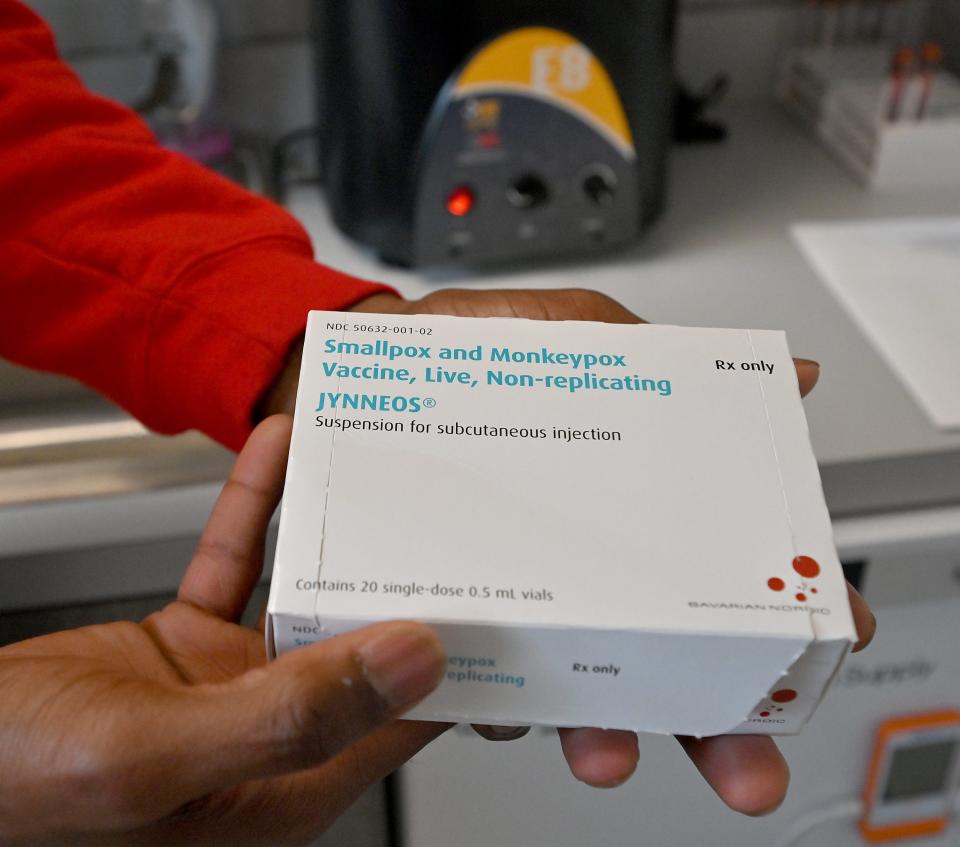
Lesions and flu-like symptoms connected to Mpox can become more “severe” for patients simultaneously infected with the HIV virus, according to Wessolossky. She noted AIDS Project Worcester tests for sexually transmitted diseases and a positive diagnosis for diseases like chlamydia and gonorrhea means the patient will be advised to get the Mpox vaccine because they fall in the high-risk category.
Final thought
It comes from Wessolossky and she said no matter what happens regarding Mpox, whether infection numbers stay low or rise, the city must be prepared — especially as we head into the summer when many of us will be outside, interacting, having fun and traveling to other places. Those conditions could create the potential for a cluster or outbreak anywhere including Worcester.
"Worcester is not isolated as a city or county when it comes to Mpox." said Wessolossky. "People move, they interact, they travel to Cape Cod or Boston, here and there. We may need to pay attention. The Chicago cluster may trickle down here. We need to be prepared."
Contact Henry Schwan at henry.schwan@telegram.com. Follow him on Twitter @henrytelegram.
This article originally appeared on Telegram & Gazette: Mpox cluster in Chicago: Could it also happen in Worcester?

